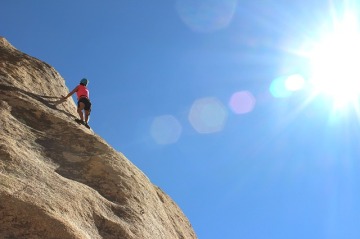I was working with a group of high school athletes, teaching them the competitive advantage of emotional intelligence. They were learning that if you know what triggers your emotions, that awareness may help you keep from being emotionally hijacked. In the middle of the explanation, a player held up his hand. He wanted help. A kid on another team really knows this young man’s buttons. The two, on opposing teams, meet regularly during the season. The other kid uses derogatory comments as a weapon against his opponents – it’s a clever form of bullying. I suspect he’s learned that he can catch his opponents off guard, subtly question their ability and get them emotionally off balance.
I asked my athlete for an example. He said in one game, he came close to making a goal. It was a great effort that  barely missed the upright. And the other kid said, “too bad you missed that one, a little more practice and you might be good enough to play in this league.” A couple of barely audible comments like that and my young athlete is completely hooked. He gets angry in his effort to prove his opponent wrong. Because of the emotional hijack, he experiences the full affect of the fight/flight/freeze response. It compromises his ability to think clearly, control his shots, and to even stick with the game plan. His anger invites desperation – the fear that maybe he CAN’T play the game.
barely missed the upright. And the other kid said, “too bad you missed that one, a little more practice and you might be good enough to play in this league.” A couple of barely audible comments like that and my young athlete is completely hooked. He gets angry in his effort to prove his opponent wrong. Because of the emotional hijack, he experiences the full affect of the fight/flight/freeze response. It compromises his ability to think clearly, control his shots, and to even stick with the game plan. His anger invites desperation – the fear that maybe he CAN’T play the game.
Mission accomplished for the young provocateur on the other team. He has psyched out his biggest threat.
So what is our young athlete to do? One proven answer is simple – practice the skill of de-triggering. It’s a learnable skill. Think of it as unhooking the emotion. With practice, he can learn to diffuse his emotional trigger before his opponent sets foot on the field.
What I suggested was that he get a partner – someone he trusts, like a coach or a parent – to practice the language that triggers him. If he practices experiencing the bullying in a controlled setting, he can get to the point that there is no longer an emotional sting to the insults. For the next few minutes we practiced how to practice. I threw my best bullying insults his way (I’m really awful at this) from “your mother wears army boots” to “so’s your old man!” I looked and sounded about as threatening as his grandmother and we laughed – which was perfect. Being insulted didn’t hurt and he found he could be in complete control.
Then I asked that we do it one more time. This time I repeated the words of his opponent while he tried to imagine his face rather than mine. The more we worked, the more he was able to chuckle – realizing the choices he had. I watched as the emotions that had been in control when he first told his story became diffused and powerless as he learned resilience. He left our session with a new practice in hand. His opponent had trained our athlete get triggered. Now he was practicing – and learning to be impervious to that trigger. Sweet.

